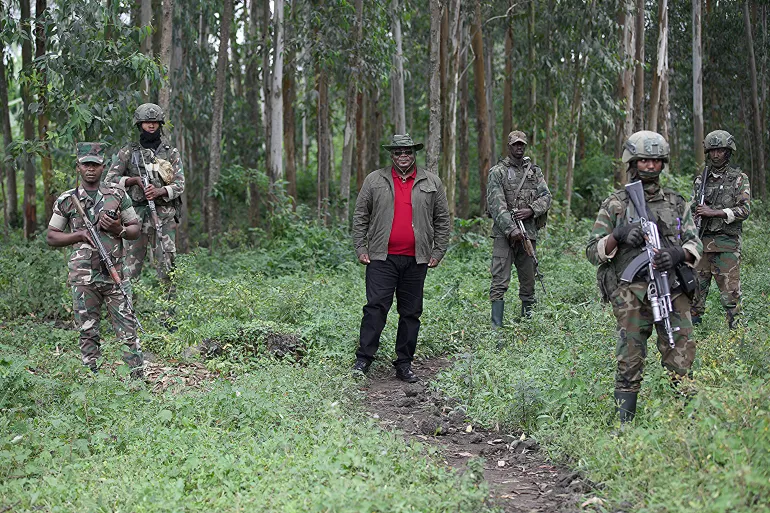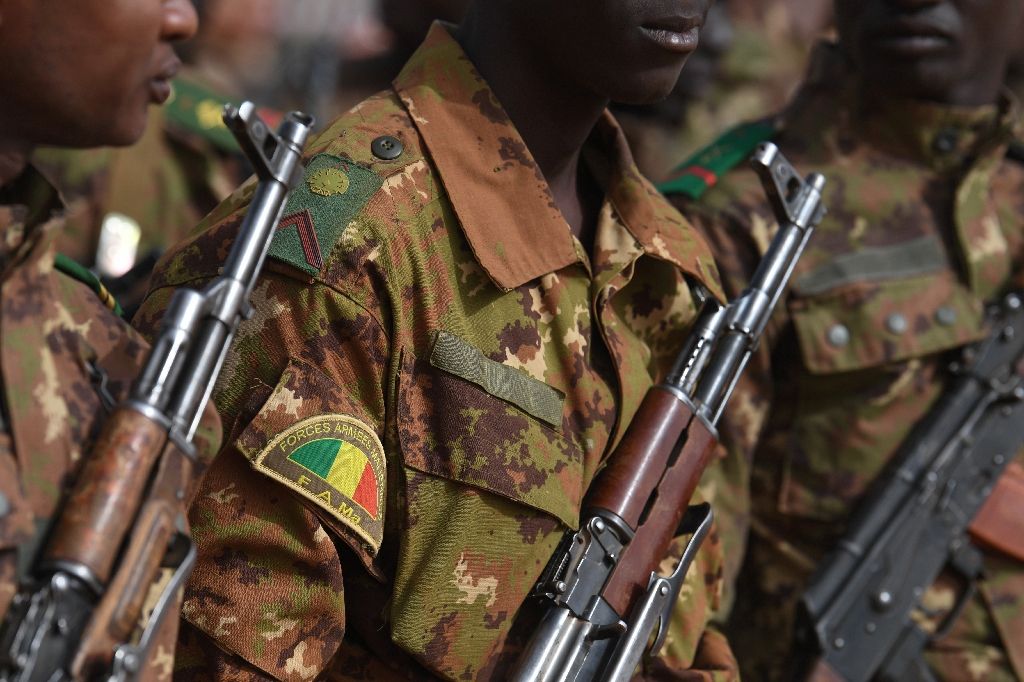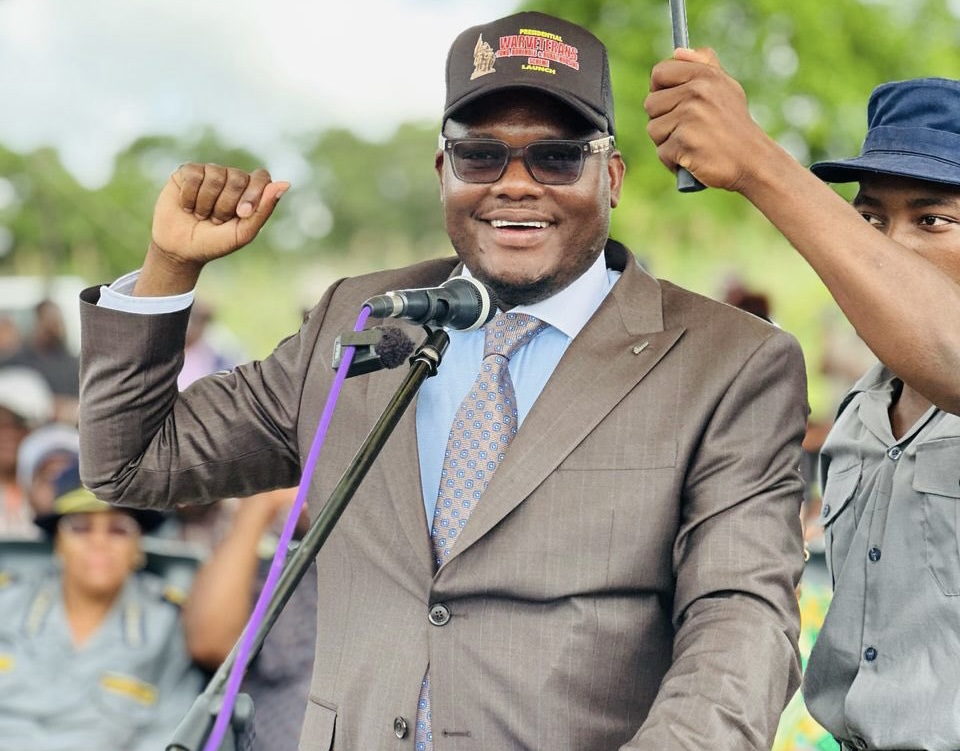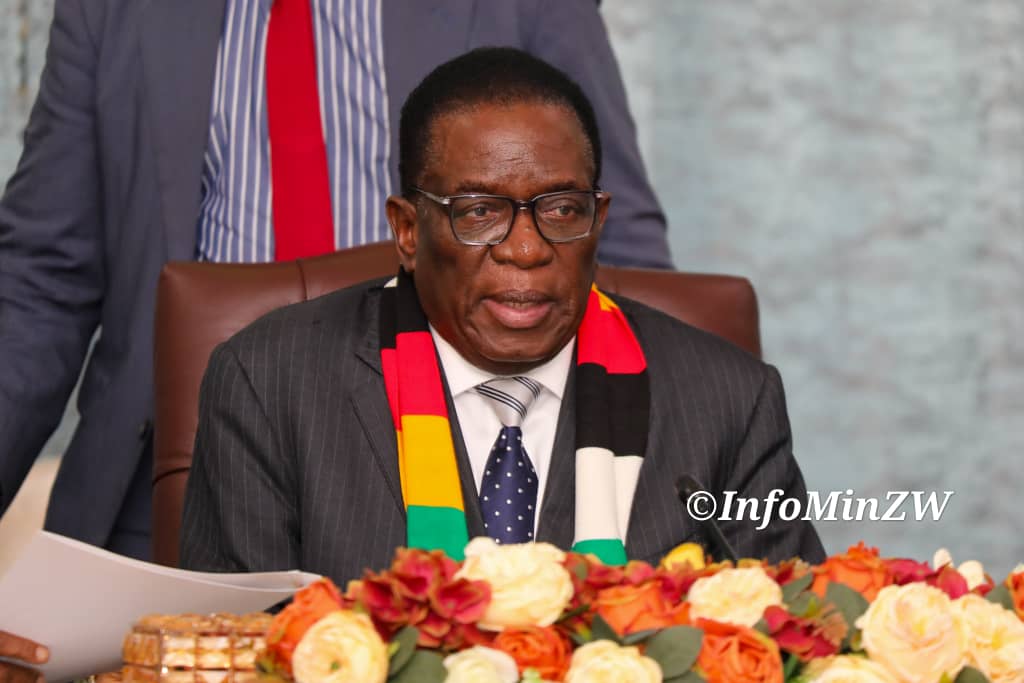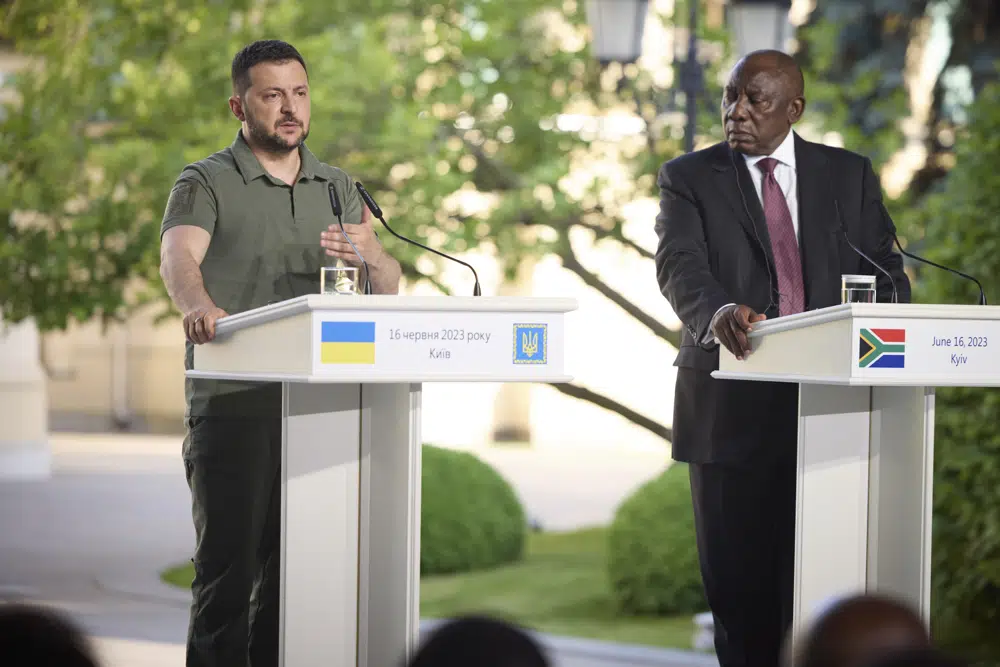GOMA, DRC – For three years, the eastern Democratic Republic of the Congo (DRC) has been embroiled in an armed conflict between the army and the M23 rebel group that has killed hundreds of people and displaced nearly two million.
M23 was first formed after a mutiny within the Congolese national army (FARDC) in 2012. Though the initial rebellion was crushed, the group took up arms against the army and allied “Wazalendo” self-defence groups again in 2022, and has since seized swaths of territory in North Kivu province.
M23 says it is defending the interests of minority Congolese Tutsis, many of whom say they suffer discrimination and exclusion in DRC for their ethnic links to Rwanda’s Tutsi community.
Kinshasa sees M23 as the greatest security threat it currently faces, with regional tensions escalating as bodies including the United Nations accuse Rwanda of supporting M23 with troops and weapons, fuelling the rebellion – something Rwanda denies.
Despite attempts at ceasefires and negotiations – including the 2022 Nairobi peace process and recent mediation efforts by Angola – fighting has continued. In Lubero, M23 advanced several dozen kilometres in just a few days in December.
Bertrand Bisimwa, the head of the political wing of M23, maintains that the group is fighting a “defensive” war. He spoke to BOJANA COULIBALY, a researcher specialising in peace and security in Africa’s Great Lakes region, about the war in eastern DRC and hopes that dialogue will prevail.
Bojana Coulibaly: Can you tell us what M23’s demands are?
Bertrand Bisimwa: Our demands boil down to a struggle for survival. We are waging an existential war because the Congolese government is subjecting part of its population to death. And this didn’t start today. It has been going on for decades, where people are forced to seek refuge, fearing death, avoiding being killed. There is hate speech and there is also a kind of radicalisation that is taking shape. A part of the citizens, namely the Tutsi, serve as scapegoats for the Congolese government to distract the people from its governance failures.
So, we told ourselves that we must not sit idly by and watch our citizens being killed in this way. This is why we are currently waging a defensive war to protect these citizens. So that they do not continue to be put to death. They are not second-class citizens. The state must take care of them and not consider them as stateless, or who are not Congolese. They are full-fledged Congolese citizens, like all other Congolese.
Coulibaly: Recently, there’s been intense fighting between government forces and M23 in Great North Kivu, in the Lubero territory. Could you explain what happened?
Bisimwa: In March, the mediator in the crisis between Rwanda and the DRC, Angola’s President [Joao] Lourenco, had invited us to Luanda to convey the message from the African Union which was to sign a ceasefire. We signed the ceasefire, but Kinshasa refused to sign it. Later, Kinshasa simply continued the war against us, and we started again – we continued to defend ourselves.
On December 15, a meeting was scheduled between the Congolese government and the Rwandan government, which also had just signed their ceasefire, although the Rwandan government or the Rwandan military are not on Congolese soil and are not fighting.
The Congolese government wanted to have a victory on the ground before the 15th. They put pressure on us, with the aim of obtaining a victory that would put them in a comfortable position in order to put Rwanda in front of a fait accompli – that either they sign what Kinshasa wanted, or they would practically derail the Luanda meeting. That was the government’s objective.
This is how they put pressure on us: they gathered more than 22,000 men assembled around 15 regiments, supported by the FDLR [Democratic Forces for the Liberation of Rwanda, an armed rebel group] – the former genocidaires of the 1994 genocide against the Tutsi in Rwanda – supported by the Wazalendo and they use them against us. We understood the manoeuvres, so we prepared sufficiently to defend ourselves.
This is what led to this escalation of violence, because for us, it was essential to thwart this military offensive on their part, and we succeeded in doing so.
We learned that they continue to prepare to reignite the war, and if they do reignite it, we will continue to defend ourselves to prevent them from continuing down that path, because we believe that for peace, it is necessary to thwart the path of war.
Coulibaly: The United Nations says M23’s advance towards the Great North Kivu as well as the increase in control of areas are a desire for expansion and conquest of territory. How do you respond?
Bisimwa: Since we started our war, we are reacting to the offensive from the government that attacks us every day. And each time, we say it: if they continue to attack us, we will silence the weapons everywhere they shoot at us.
The logic of war dictates that when you have supremacy over the other, you take the space from which they were shooting at you. And we fight for that. When we fight against the government, those who attack us, we are obliged to silence the weapons from the space where they shoot. And that is what allows us to stop the war. So, we cannot be shot at and just defend ourselves without taking the weapons from the opponent. That would be illogical, it would mean continuing to submit ourselves to death and to submit to death the people that are in our area.
You will see that every time we gain the upper hand over the opponent and take the space from which they were shooting at us, we stop there, and we wait. If they launch the same offensive again, at that moment we advance. So, we cannot be blamed for defending ourselves and for winning against the offensive that is imposed on us.
When there is war, people are afraid and can flee, because they must seek shelter. And this is a completely normal attitude. So, we cannot place this responsibility on just one party. I think there is a kind of refusal to face reality at the level of the United Nations as well because we succeeded during our liberation action in bringing back or emptying more than nine camps of displaced persons that were set up in the area that we control today. OCHA recently published a report where it stated that more than 480,000 families have returned to their homes, in our area. And so, I think that instead of starting to condemn, everyone needs to look at themselves, and we must have the courage to say what is actually happening on the ground.
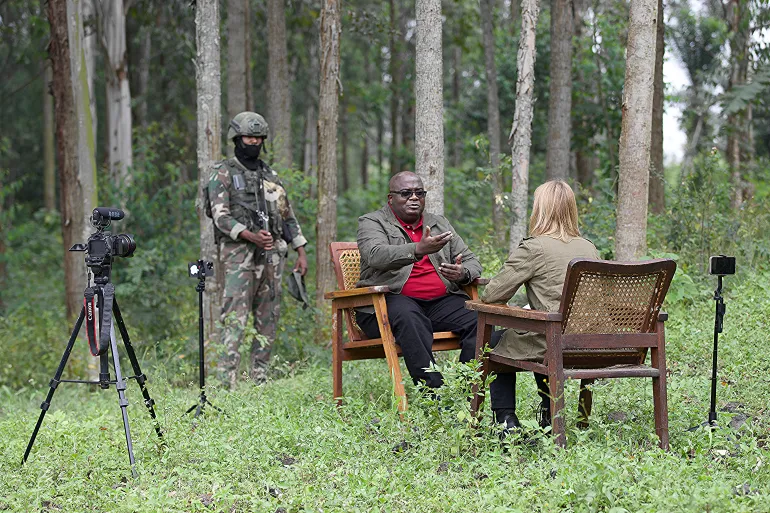
Bisimwa: The refusal of dialogue by the Congolese government is a refusal of a civilised resolution of conflicts. Because the civilised world today no longer fights; it resolves problems through dialogue and moves on. But Kinshasa is in the logic of war.
It is necessary to first understand the framework in which we were in Nairobi in 2022. On April 10, the heads of state of the East African Community had gathered, at the request of President [Felix] Tshisekedi, to ask us to withdraw to a certain distance, because we had just liberated locations. And the Congolese government wanted a dialogue with us.
We found that civilised because we told ourselves, after all, we have the dialogue we wanted in order to address the root causes of the conflict. So, we found ourselves in Nairobi on April 20, 2022, and we thought we were coming to talk. But while we were in Nairobi, the armed forces of the DRC began to reclaim the locations from which we had withdrawn, and it was moving towards our positions.
We alerted the facilitators that there is a situation developing on the ground that needs to be stopped quickly because it risks escalating. The facilitator discussed with the Congolese government, but nothing was stopping on the ground.
Unfortunately, we were not listened to and the war restarted. The next day, FARDC soldiers woke up, they shot at our soldiers; we defended ourselves and the war resumed. The Congolese government used that as an excuse to say that it can no longer tolerate us in the room and that we should leave.
That is when we understood that the Congolese government was not ready to be in dialogue with us. And it is the same logic still in place today.
War cannot solve our problems. Dialogue alone can allow us to address the root causes of the conflict. Because it has lasted a long time. The east of the country is suffering because of these conflicts that do not end. And the east of the country is our home. That is where our families live. Our families cannot continue to be put to death every day simply because the capital is located 2,000km from where we live. If Kinshasa cannot solve our problems, it should let us solve them ourselves.
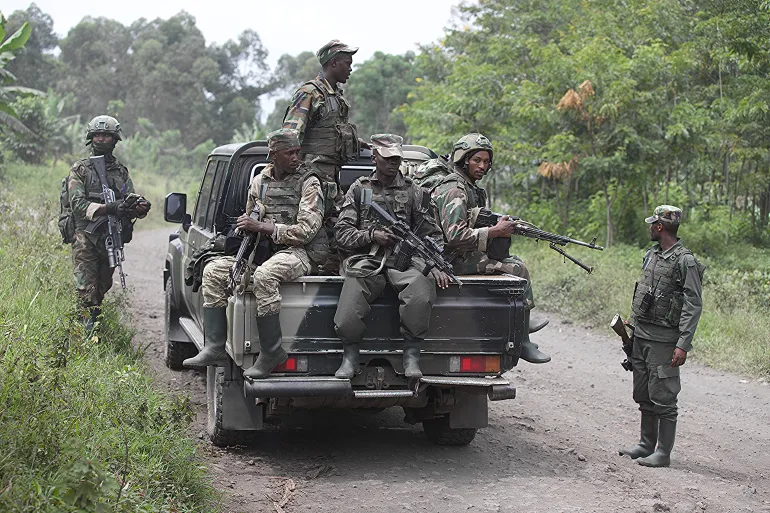
Bisimwa: Everyone knows – the whole world knows – that there are no more armed groups in Congo. All these armed groups have been integrated into the FARDC as reservists. There is a law that came out; all these Wazalendo, all those we call the VDP, are auxiliaries of the FARDC who have been officially integrated. The FDLR has been integrated officially into the FARDC. So, there are no more armed groups.
We have no problem with these armed groups. We have existential problems that will not be solved by armed groups. It is not these armed groups that manage the country, it is the government that manages the country. It is to the government that we must address and not the armed groups.
The second thing, and I would like Minister Wagner to understand this very well: we are not fighting for jobs within the government. We are not fighting for ranks. Our officers, our soldiers have been in the Congolese army. They had ranks there. There are some among us who have been ministers in Kinshasa, who have been in the government. They left because the problem had not been resolved. This means that today, even if we were offered these positions, it would not resolve our misery, our suffering.
We must address the root causes of the conflict to stop the violence in the east of the country. Each one of us, if the country becomes peaceful, can live where they want, we have land that is fertile. We can cultivate the land, we can keep our cows, we can produce milk, we can go teach. Each of us can have an opportunity for our family and for our survival, rather than going into politics.
What we want is to talk with them to resolve issues related to the governance of the country. A governance that kills us, a governance that sends us into exile, a governance that does not allow us to provide for our children tomorrow and the day after. Our children must be able to live. We must create an environment that allows future generations not to inherit the problems that we have not managed to solve.
Coulibaly: The latest battles against the government coalition took place near territories affected by the presence of the ADF armed group. Is there a link between your movement and this group that claims to be from Islamic State (ISIL or ISIS)?
Bisimwa: We were the first in this country to denounce the ADF threat. And I believe that we have been talking about it for more than 10 years. And the Congolese government has always taken us for people who are joking. They said the ADF does not exist. Today, this issue has become a reality visible to everyone, because they have excelled in massacres against the population and to say that it is us who have links with them – that is also immoral, to think in that way. We have always fought for those people to be neutralised. And the sooner they are neutralised, the better the country would be today.
The FARDC or the Congolese government do not mobilise as many forces against the ADF as they mobilise against us. Against the ADF, they just send a few soldiers to accompany the Ugandan army that does all the work; against us, they mobilise more than 15 regiments of 22,000 men. They mobilise impressive weapons, impressive state-of-the-art equipment. So, between us and those who behave in this way, who can we say is closer to the ADF?
Coulibaly: You are accused of exploiting the mines of Rubaya for the benefit of Rwanda. What do you say to this?
Bisimwa: Regarding Rubaya, we did not want it at the beginning, because we never had the intention of taking areas where there are minerals. We have always avoided this so that we would not confuse our existential cause with the exploitation of minerals.
But the reality is – and we communicated it – that there was a training centre in Rubaya maintained by the Burundian army with the Imbonerakure militia, which trained young people, the Congolese, in the handling of bladed weapons, with the intention of infiltrating them into our space to sow death and desolation. We communicated this to the world so that everyone would understand that there is a threat in Rubaya that needs to be addressed quickly. There was no reaction, and everyone neglected this. This is how we made the decision to stop this thing because it was going to create for us more problems than solutions.
When we entered this space, in this area of Rubaya, there was never any fighting inside Rubaya. The strategy we took was to evacuate from Rubaya all those who had weapons in these mining sites. The second group of people to evacuate from those sites were children who were used in the mines, with all the potential for accidents. The third group of people we extracted from Rubaya were pregnant women who very often were mistreated.
Today, Rubaya is doing well. We have kept in Rubaya the same people, the same organisations that were exploiting the mines because they are private entities that were exploiting the mines there. And we have forbidden our officials from being in the mines of Rubaya. There is not a single member of the M23 in the mines of Rubaya. So we have left this exploitation to those who were doing it. And we are happy with a small tax to allow that this police mechanism that we have established around Rubaya can continue to hold. This is what we have done.
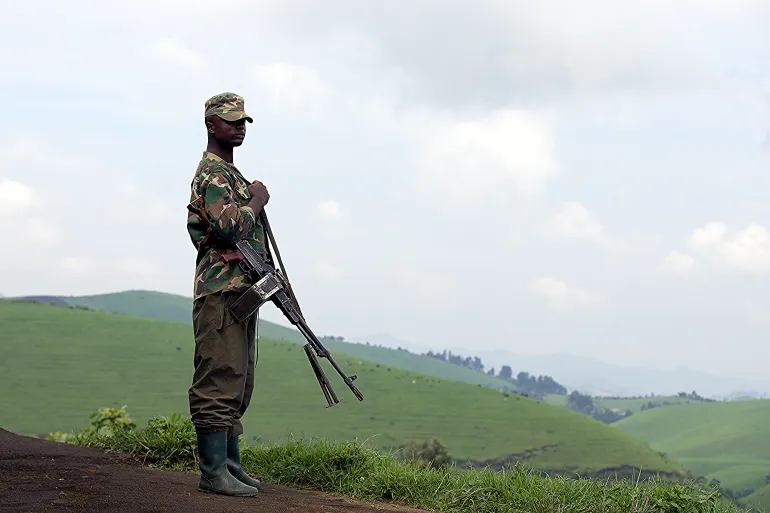
Bisimwa: What we have always done, in, around or near this park, whether at the level of our populations, or in the actions we take, is to protect this world biodiversity reserve. Before our arrival, we found that the park was overrun by the FDLR who were engaged in woodcutting activities to make charcoal. There is a United Nations report that was released and which stated that the FDLR profited from this charcoal trade. They were talking about more than $100m a year.
The second thing we noticed was the invasion of the park by armed groups, including the FARDC. These FARDC who were not paid, they were killing the park animals to feed themselves. And we said no, now, there is not a single tree left in the parks. So, we created a protection force for the park that works in agreement with the rangers to protect the park.
The third action we took was an educational action towards our population. To make them understand that they have no interest in invading the park. Because we found that the boundaries of the parks were threatened. There are even citizens who have taken plots of land in the park concession, which was unacceptable. We started by educating our population to make them understand that we can benefit from what comes from the park in another way. That is to say, when tourists come, what they will pay as tourists will allow us to carry out development projects.
When we arrived at the park, there was no wildlife. But now, all the animals that had left the park are starting to return because there is security. We can see the hippos parading in the swamps. We can see families of antelopes running here and there. We can see the gorillas. And it’s beautiful. Everyone who passes by that road knows how to appreciate the beauty of the nature that God has given us, and I believe that it’s a privilege that we have, which we must preserve.
[This interview was originally published by Al Jazeera]

